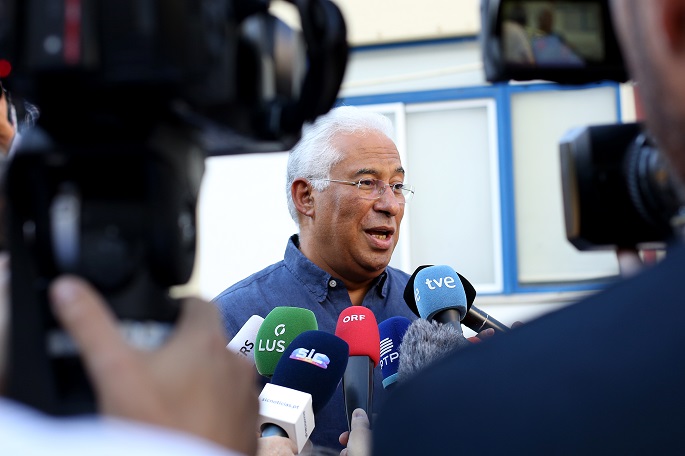Socialists win Portuguese national election
Published : 07 Oct 2019, 14:40
Portuguese Prime Minister Antonio Costa's Socialist Party (PS) has won Sunday's national election, according to official results.
With 99 percent of the parishes counted and only four seats to be confirmed, the PS garnered 36.7 percent of the votes, or 106 seats in the parliament. The center-right Social Democratic Party (PSD) received the second most seats with 77 seats and 28.6 percent of the vote, according to the Ministry of Internal Administration.
In Sunday's election, 230 seats for the 14th legislature were at stake, with 21 political parties or alliances competing for power.
The final results saw a clear victory for the socialists, the fall of center-right parties, and the rise of small parties, with three new parties joining parliament.
"The Socialist Party has won, reinforcing its political position in Portugal," said Costa in his victory speech.
The prime minister said that the socialist victory shows that the electorate "likes the Geringonca (a nickname for his minority government) and wants its governance to continue."
He said that he wants to guarantee stability in the next four years.
"As we don't have a majority, our responsibility is to seek agreements that allow us to reach the needed stability. The socialist government will work, day by day, to keep that stability," he said.
Costa also expressed his concern over the high abstention rate, which was described as "unprecedentedly" high by local media.
"The high abstention rates must be a cause for reflection to leaders of all political forces. All of us must work to reduce the rates in the following elections," he said.
Rui Rio, party leader of the PSD, admitted defeat, and said that there were external and internal factors that contributed to the results.
"The benign international conditions" and "the instability inside the PSD fuelled by some press" are among the factors that "allowed the government to achieve the results without having to do much," he said.
The election was marked by the victories of small parties. The People Animals and Nature Party won four seats, up three from the previous election in 2015. The Liberal Initiative party entered parliament for the first time, winning one seat. The Free party won one seat and Enough, a far-right party, elected one depute.
The election has brought some major changes to the Portuguese national assembly, namely the fall of the Christian democratic party (CDS-PP), the former coalition party in the social democratic government between 2011 and 2014, to only 4.4 percent of the vote, which led its party leader Assuncao Cristas to resign.
The Left Bloc has also lost seats and becomes the third political party in the country. Catarina Martins, the party leader, has expressed willingness to give conditional support to the PS.
Jeronimo de Sousa, secretary-general of the Portuguese Communist Party, has announced on behalf of the Unitary Democratic Coalition that his alliance is ready to negotiate.


